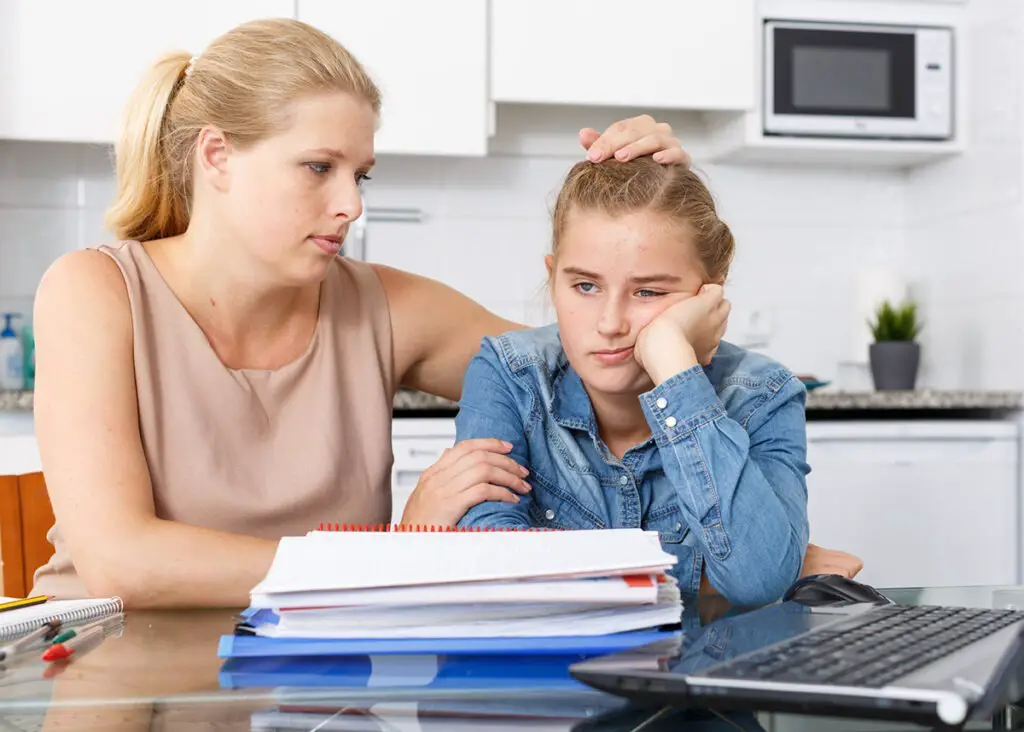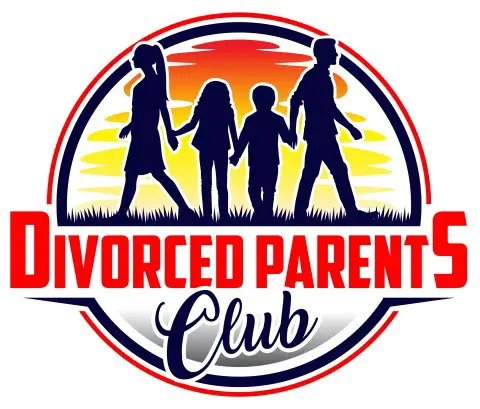It’s easy for deeply unhappy couples to separate once their kids move on to college, thinking it won’t have as big an impact on them. But if you’re in this situation, how do you tell college-age kids you’re getting divorced?
Tell your children about the divorce in person, and ideally with all children present at the same time. Be honest, especially if they ask tough questions, but avoid blame, and especially let the kids know this isn’t their fault. Focus on the kids and not the divorce.
But do be prepared for a negative reaction. Although divorce rates have recently decreased, some marriages are beyond salvaging.
Divorce can have some serious negative impacts on your children’s future. For this reason, it’s important to thoughtfully break the not-so-pleasant news to your children.
This article will provide tips on the best ways to convey your divorce decision to your college-age kids.
1. Tell Your Children About the Divorce in Person
Technology has made long-distance communication a lot easier. Still, your children shouldn’t learn about your divorce over the phone.
Divorce isn’t any causal breakup, especially when you have teenage kids already.
You have a family and grown-up kids who deserve respect, even if you and your spouse are going your separate ways. Telling your child about your breakup over the phone tells your college-age kids you don’t respect or regard them.
Don’t email or text your college-age child about your separation. FaceTime, Zoom, Skype, or any other video conferencing technology is off the table, too!
The best way to break the news to your child is face to face. Have an in-person conversation with your child. This way, they can see, hear, and pick up all the subtle nuances and non-verbal cues during the discussion.
Face-to-face communication can convey a more meaningful message to your child.

2. If Possible, Break the News to Siblings Together
Sibling rivalry is a common thing among children that grew up in the same household. Still, they need each other for emotional support.
For this reason, it can be helpful to bring the siblings together and tell them about the divorce.
This kind of news isn’t easy for anyone. By using each other as a support system, your kids may be able to handle the disrupting news in a more constructive way.
Take Childrens’ Developmental Stages Into Account
It’s not always a good idea to explain the divorce to your children together. A 10-year-old won’t handle the news that mom and dad are separating the same way as a college-age kid. So if you have younger children in addition to older children, consider having separate conversations but ideally on the same day.
You must understand the developmental stages of your children before telling them about your decision. Approach your kids separately if they’re not on the same level of development.
3. Avoid Blaming Anyone for the Divorce
Divorce hurts – no one ever looks forward to it, but it still happens.
Whatever the reason for the breakup, it’s in everyone’s interest never to play the blame game. Don’t force your child into taking sides. Simply communicate your decision to split up without saying who did what, why they did it, and how it hurts.
Instead, make it clear that you and your ex-spouse will continue to care for and support your child, no matter what.
4. Have the Conversation During a Short School Break
Pick a convenient time during which you and your soon-to-be-divorced spouse can sit together with your college-aged child and have a conversation.
A long school holiday is not the best time to have this conversation.
Waiting to tell your college-age kid about a divorce is often called the “freshman call,” and for good reason. You want your kids to be a bit older (usually when they’re off to college) before filing for a divorce.
So, it makes sense to give them the news when they aren’t spending a long holiday at home. Although the divorce will still impact your adult child, giving them time to be on their own shortly after learning about the breakup may help them cope better.
By waiting to break the news, your kids won’t have to be at home to endure all the emotional stress of seeing their parents go through a divorce. Instead, they’ll be away in school and able to occupy themselves with their academic pursuits.

5. Let Your Kids Know They Are Not To Blame for the Divorce
The dreaded freshman call assumes that college-age kids are less likely to experience significant trauma as a result of a divorce. Still, this isn’t always the case.
News of a divorce can rock the world of adult children just as much as it can younger kids. If anything, young adults are already used to their family as a unit. Splitting up that unit will forever change their world as they know it. Such a drastic change can impact them negatively.
For this reason, it’s crucial to let adult kids know that they’re not responsible for the divorce in any way.
Ignoring this important message can create problems for your children in the future, contributing to feelings of self-blame and doubt for the future.
a.) Your Children May Go Into Self-Blame Mode
Many parents going through a divorce may not know that young adults can beat themselves up when they hear about an impending divorce.
“I could have prevented this if I wasn’t so selfish!”
Your college-age children may think this way if you don’t clarify that the split-up isn’t their fault.
b.) Kids May Stop Believing in Marriage or Raising a Family
Besides feeling guilty and beating themselves up for the divorce, college-age children may lose faith in the family unit.
In many cases, young adults grow up idealizing their parents’ relationship. The news of a divorce can burst their bubble and leave them in shock.
The word “home” may no longer hold the same meaning to them. Worse still, they may become cynical about any romantic relationships in their own future.
6. Leave Your Kids With a Positive Message About Marriage
One of the best things you can do for your young adult is to make sure they don’t give up on the idea of marriage and raising a family. Think of this step as damage control.
However, instead of merely putting on a front, come clean and acknowledge your shortcomings.
Take Responsibility for the Divorce
Taking responsibility for your failed marriage lets your child know that the problem isn’t with the marriage institution. Instead, it simply didn’t work out for you and your ex-spouse.
Remember to explain to your young adult that family is important and marriages can work.
Let them understand that just because your marriage didn’t work out doesn’t mean they won’t have a happy home in the future.
It’s also vital to communicate to your children (in words and actions) that you and your ex will be there for them always. Letting them know that they can always count on your support can go a long way to lessen the impact of the divorce.
7. Be Honest, but Keep the Divorce Details Private
Be open and honest when you talk to your child about the divorce. However, it’s not necessary to explain the details of the divorce.

Revealing Divorce Details Leads To Blame and Victimization
You may not intentionally want to blame your ex-spouse for the separation, but dabbling into the details can lead to pointing fingers. However, this isn’t the only effect that over-explaining the divorce can have.
Going into the nitty-gritty details of the separation may force the child into taking sides. It may even make them feel the need to defend the “victim” of the story.
Your child must think the best of his or her parents, even if you’re going through a divorce. They don’t need to hear the details of a drinking problem or an affair. Also, spare them from the details of any financial settlements.
8. Focus on Your Kids and Not the Reason for the Divorce
Be thoughtful when you explain the reason for the divorce to your child. Think about what you want to say and how it can impact your child’s current and future perspectives.
It’s okay to let your child know that you’re filing for divorce because living together with your spouse is no longer healthy for everyone involved.
For example, you could say something along the lines of, “we don’t want to keep fighting all the time, as we do. It’s not good for the family. So, we’ve decided to divorce.”
It’s crucial to acknowledge how your decision will impact your college-age children. Reassure your kids of your unwavering support, even if you no longer live with your ex-spouse under the same roof.
9. Be Prepared for Negative Reactions From Your Kids
Parents aren’t the only ones that can feel hurt during a divorce. Children can also feel hurt, frustrated, and disappointed as a result of the situation.
It’s unrealistic to expect your kids to be happy or not to react negatively to the news of your divorce. Unfortunately, many young adults don’t know how to constructively express hurtful feelings, especially when they feel let down by their parents. The result can be far-reaching and may even jeopardize their future.

Here’s a quick rundown of a few negative reactions you can expect and how to nip them in the bud or at least manage them:
a.) Children May Become Irritable or Angry
Being irritable or angry is a common first reaction for many children after discovering that their parents are splitting up.
Children may direct their anger at their parents or themselves. It’s also not surprising to see some kids vent their frustration to close friends, especially if they’re in a romantic relationship. While the anger may eventually fizzle out after a while, it can continue to manifest for a very long time.
b.) Your Kids May Lose Interest in Socializing
In some cases, children may not immediately become angry or weepy. However, don’t mistake that to mean they don’t feel something.
The news may be too shocking for some children to elicit an immediate reaction. Instead, they may gradually start to withdraw into their shells. The hurt they feel deep inside can prevent them from making new friends or having less social contact.
c.) Kids May Engage in Antisocial or Destructive Behaviors
Studies from the City University of New York indicate that kids who experience divorce have a higher chance of getting into antisocial behaviors. They may become more aggressive, and delinquent, and take part in crimes.
Worse still, these kids can start to engage in destructive behaviors that can harm their health. Some young adults may begin to abuse drugs, and others will start smoking.
It’s important to understand your child’s reaction to the divorce in order to help them cope with the news in a constructive way.
Kids May Experience Mental Health Problems
College-age kids whose parents go through divorce are at a higher risk of developing mental health problems.
Anxiety and depression can result in the child’s inability to sleep well at night. This problem can lead to poor overall physical health if it persists for a long time.
Children May Perform Poorly in Academics
Divorce brings sudden changes to the family that can distract college-age children. It’s not out of place to see kids losing focus in their schoolwork and performing poorly.
Pay attention to your child’s performance in school to recognize any academic problems that may arise as a result of the divorce.
What You Can Do for Your College-Age Child During a Divorce
You can minimize the above negative consequences by following these suggestions:
- Avoid divorce litigation (if possible). It’s usually best to negotiate a divorce agreement using a collaborative divorce. Doing so will bring about an amicable divorce and result in less negative impact on your kids.
- Address your college-age kid’s needs. Be sure to address the immediate needs of your adult child with your divorce attorney. The marital settlement agreement should cover the child’s health insurance, college tuition, and other needs until they become financially independent.
What are the Most Important Things About Telling Kids About a Divorce?
The most important message should always be that you still love them and that this isn’t their fault.
Then the next most important thing is for the parents to have a united front in front of the kids. Obviously, there are issues or you wouldn’t be divorcing. But this difficult time will only get harder and lead to a lot of negative feelings if you are constantly fighting and throwing each other under the bus in front of your kids.
Next, make sure to take the time to listen.
Kids of any age will have a lot of questions. While you will want to give an age-appropriate answer, it’s crucial that you do answer every question honestly and openly.
Obviously, since you’re reading this, you have at least 1 child in college. But if you also have young children, or if they have younger siblings in high school, it may be better to have separate conversations.
That way your message, while still similar, can be based on the age group.
After all, a college-aged kid is old enough to hear that one of their parents had an affair. Young children are not quite ready for that news yet.
But ultimately, the message should be focused on them and that you still love them, and that the parental divorce isn’t their fault. Every other message should come second to that.
Will a Family Therapist Help?
In some ways, it might not seem like the impact of divorce would be substantial on adult children of divorce.
In reality, since we know the brain isn’t fully developed until age 25 (source), children of any age under that can, in fact, benefit from working with a therapist.
After all, LOTS of things about the world they took for granted are changing:
- Family traditions
- The home environment
- Family dynamics
- Child custody if they have younger siblings
So don’t overlook or underestimate the value of the whole family seeing a therapist together.
They can help everyone better understand and navigate their own emotions and the divorce process. But they can also help mediate when the conversations get tough (and they will).
Ultimately, the right therapist can help everyone, including both parents, walk away in a positive way.
Key Takeaways
Divorces can take a heavy toll on children. For this reason, it’s essential to help kids successfully work through such a transition in the most constructive way possible.
Be honest with your children and acknowledge that your decision will disrupt their world. Most importantly, leave your college-age kids with a positive message about marriage and the family unit.
